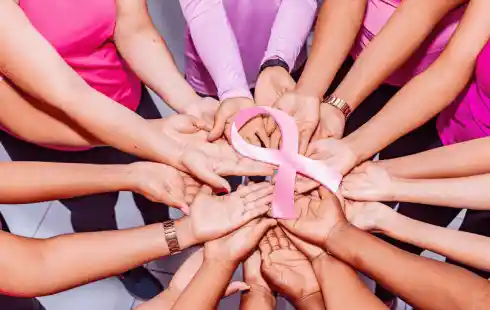
Oktoberfest in the news: How people around see beer's birthday
Section: Arts
 Breast cancer remains one of the most prevalent and formidable challenges in women's health worldwide. Despite significant advancements in research, diagnosis, and treatment, breast cancer continues to affect millions of lives each year. As we navigate the complexities of this disease, it is essential to examine the progress made, the ongoing challenges, and the avenues for empowerment and support for those impacted by breast cancer.
Breast cancer remains one of the most prevalent and formidable challenges in women's health worldwide. Despite significant advancements in research, diagnosis, and treatment, breast cancer continues to affect millions of lives each year. As we navigate the complexities of this disease, it is essential to examine the progress made, the ongoing challenges, and the avenues for empowerment and support for those impacted by breast cancer.
Breast cancer is a type of cancer that develops in the cells of the breast. It can occur in both men and women, but it is far more common in women. The disease can manifest in various forms, including invasive ductal carcinoma and invasive lobular carcinoma, among others. Early detection through regular screenings, such as mammograms and clinical breast exams, is crucial for improving outcomes and survival rates.
Over the years, significant strides have been made in understanding the molecular and genetic mechanisms underlying breast cancer. This knowledge has led to the development of targeted therapies, immunotherapies, and precision medicine approaches tailored to individual patients' genetic profiles. Additionally, innovations in surgical techniques, radiation therapy, and hormonal therapies have improved treatment outcomes and quality of life for breast cancer patients.
Despite progress in breast cancer research and treatment, numerous challenges persist. Access to quality healthcare, early detection services, and comprehensive treatment remains uneven, particularly among underserved and marginalized communities. Disparities in breast cancer incidence, mortality rates, and survival outcomes highlight the urgent need to address social determinants of health, including socioeconomic status, race, ethnicity, and geographic location.
Empowering patients and survivors is paramount in the fight against breast cancer. Education, advocacy, and support services play a crucial role in equipping individuals with the knowledge and resources needed to navigate their diagnosis, treatment, and survivorship journey. Patient-centered approaches that prioritize shared decision-making, emotional support, and survivorship care planning can help improve the overall well-being and quality of life of breast cancer patients and survivors.
Raising awareness about breast cancer risk factors, symptoms, and the importance of early detection is essential for saving lives. Breast Cancer Awareness Month, observed annually in October, serves as a platform to educate the public, mobilize support, and promote screening initiatives. Community-based outreach programs, media campaigns, and educational resources play a crucial role in empowering individuals to take charge of their breast health and seek timely medical attention.
Continued investment in breast cancer research and innovation is vital for advancing our understanding of the disease and developing more effective treatments. Collaborative efforts among scientists, healthcare professionals, advocacy organizations, and policymakers are needed to accelerate progress in breast cancer prevention, early detection, and treatment. Funding initiatives, research grants, and clinical trials offer opportunities to explore promising avenues for improving breast cancer outcomes and reducing mortality rates.
Building a culture of support and resilience within the breast cancer community is essential for fostering hope, solidarity, and empowerment. Peer support groups, survivorship programs, and online communities provide avenues for individuals to connect, share experiences, and access emotional support. Empowering narratives of survivorship and advocacy amplify voices, challenge stigma, and inspire action towards a future free from breast cancer.
Breast cancer remains a significant public health challenge, but progress in research, treatment, and support services offers hope for the future. By raising awareness, promoting early detection, addressing disparities, and fostering empowerment and resilience, we can continue to make strides in the fight against breast cancer. Together, we can support and empower those affected by breast cancer and work towards a world where every individual has access to the care and support they need to thrive.
Image by Marco Jean deOliveira Teixeira from Pixabay

Section: Arts

Section: Business

Section: Business

Section: Arts

Section: Health

Section: Arts

Section: News

Section: News

Section: Arts

Section: Business
Health Insurance in Germany is compulsory and sometimes complicated, not to mention expensive. As an expat, you are required to navigate this landscape within weeks of arriving, so check our FAQ on PKV. For our guide on resources and access to agents who can give you a competitive quote, try our PKV Cost comparison tool.
Germany is famous for its medical expertise and extensive number of hospitals and clinics. See this comprehensive directory of hospitals and clinics across the country, complete with links to their websites, addresses, contact info, and specializations/services.
One of the most beautiful squares transforms into a summer stage every year for two days. The Gärtnerplatz Open-Air features a free music and cultural program across three stages, as well as street food from local vendors. On Saturday, the main stage at Gärtnerplatz offers something for everyone,...



No comments yet. Be the first to comment!